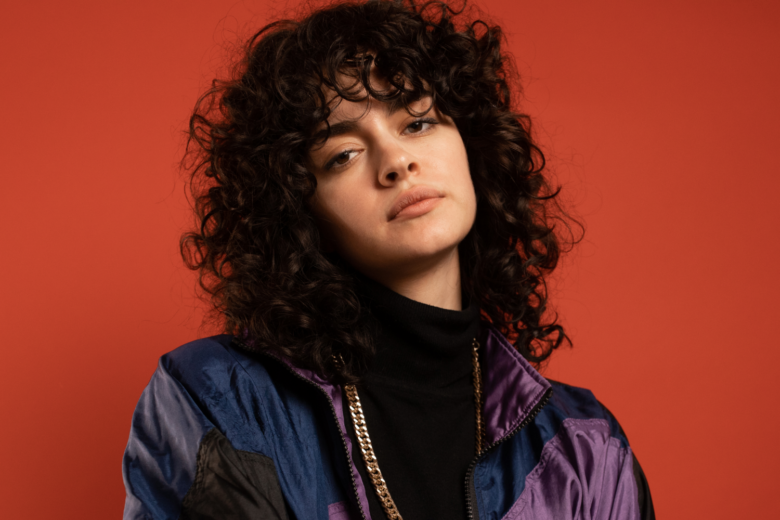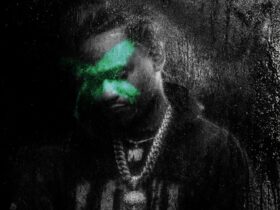Music has always been about breaking barriers. Just ask Jane Keys. Her defiant gaze on this month’s Amplify cover tells you everything you need to know—this is someone who’s never asked for permission to create on her own terms.
“People keep trying to put me in a box,” Keys remarks with a wry smile, absently twirling one of her signature curls as the late afternoon sun bathes her Brooklyn studio in golden light. “But I’ve spent my whole career finding ways to kick the damn thing apart. Sometimes loudly,” she adds with a laugh that fills the room.
What began as bedroom recordings shared on SoundCloud has erupted into a cultural phenomenon that industry veterans are still struggling to categorize. Keys, who taught herself production at 15 on a borrowed laptop (which she swears she eventually returned), recognized early that traditional pathways to success were collapsing. “The gatekeepers were losing their keys,” she says, clearly enjoying the pun on her stage name. “I saw the cracks in the system and decided to slip through them instead of knocking on doors that weren’t opening.”
By 22, her independently released mixtape “Midnight Frequencies” had gone viral, catching the attention of streaming platforms and established artists alike. Rather than signing with a major label—she reportedly turned down three separate seven-figure deals—Keys created her own imprint, NoiseTheory Records, which has since become home to seven other boundary-pushing artists.
“My mom thought I was absolutely crazy,” she admits, reaching for her half-empty coffee mug. “She kept the classifieds open to job listings for months. But I couldn’t stomach the idea of someone else owning my sound, my story. That’s like selling your voice.”
Her creative process—which she documents in chaotic, unfiltered behind-the-scenes clips for her followers on TikTok—is famously unpredictable. “Some days I’m in the studio for sixteen hours straight and forget to eat,” she explains. “Other days I need to disappear into nature completely. My team has learned to roll with it because they know when I come back, I’m bringing something worth the wait.”
Those who work with Keys describe an intensity that borders on obsessive, balanced by unexpected moments of playfulness. “Jane can be working on a beat until 4 AM, completely locked in, then suddenly decide everyone needs to go get pancakes,” says longtime collaborator Marcus Chen. “Her brain makes connections the rest of us miss because she’s willing to follow weird impulses. That’s why her sound is impossible to replicate.”
With over 2.3 million followers across platforms, Keys has built a digital community that feels more like a movement than a fan base. You can follow her journey on Instagram, Twitter, and TikTok, where she regularly shares everything from production tutorials to impromptu living room performances of unreleased tracks.
“Music isn’t just about sound—it’s identity,” Keys insists, scrolling through messages from fans on her Instagram. “Every track I put out is another piece of who I am. If you listen to my entire discography in order, you’re basically reading my diary,” she says with a slight wince. “For better or worse.”
Her influence extends beyond her own releases. Keys has become a vocal advocate for artist ownership, fair streaming compensation, and creating pathways for underrepresented voices in the industry. Her annual “Future Noise” workshop has provided production training and business mentorship to over 300 young artists from marginalized communities.
“Success without bringing others along feels hollow,” she says, abruptly pausing our conversation to jot down what appears to be a melody idea in her always-present notebook. “I’m interested in changing not just how we create music, but how the entire ecosystem works.”
At 28, with three chart-topping albums and a devoted global audience, Keys seems to have only scratched the surface of her potential. When asked what’s next, she glances at her studio equipment with the look of someone who has secrets she’s dying to share.
“I’ve been experimenting with sounds that terrify my manager,” she grins. Her latest series of cryptic posts on Twitter have sparked fan theories about a new project dropping soon. “Music should evolve as we do. If I’m making the same thing I made three years ago, I’ve failed.”
We’ve gone well over our scheduled interview time. Keys’ road manager appears at the door, tapping his watch meaningfully. But she’s in the middle of explaining her vision for breaking down the artificial barriers between genres, and she holds up a finger. “Two more minutes,” she mouths. He rolls his eyes good-naturedly, clearly accustomed to “Jane time.”
That’s when I realize what makes Jane Keys more than just another indie success story. In an industry built on calculation and compromise, her greatest disruption might be her stubborn insistence on remaining completely, chaotically human—and inviting the rest of us along for the ride.












